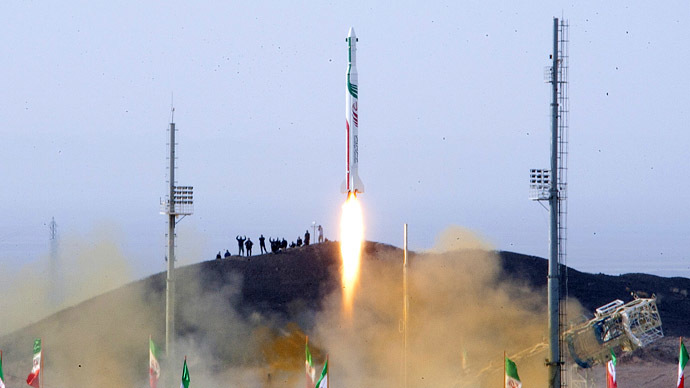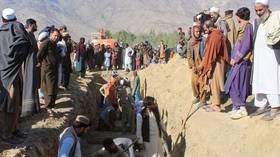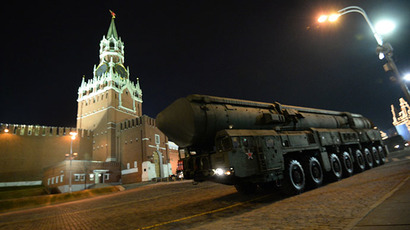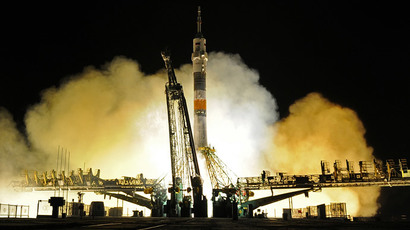Russia to train Iranian cosmonauts, build recon sats – report

Russia and Iran have reportedly signed a secret deal on wide cooperation in space exploration, ranging from training Iranian cosmonauts in Russia to possible production of Earth observation and telecommunication satellites for Iran.
The alleged deal was boosted by the West's sanctions targeting
Russia in retaliation for its position on the Ukrainian crisis,
Russian newspaper Izvestia reported.
“A protocol on cooperation was signed on April 10 in Tehran
after the fifth session of a Russian-Iranian work group on space
cooperation,” the newspaper cites a source in Roscosmos,
Russia's national space agency.
The satellite part of the agreement is of greatest interest for
Tehran. Russia pledged to provide sample images of earth gathered
by its Resurs-DK and Resurs-P satellites, which allow taking
photos with resolution up to 70 cm per pixel, Izvestia said
citing the text of the protocol it obtained.
Iranians plan to build domestic communication stations capable of
receiving information from the Russian constellation of
satellites.
“Russia has assured the Iranian side that there is no
insurmountable obstacle to the delivery of receiver stations to
get satellite information from the Russian earth observation
satellites to communication centers located in foreign
nations,” the protocol reportedly says.
Moscow may further create and launch reconnaissance satellites
under a contract with Iran. Another contract may be negotiated
with Iran for a telecommunication satellite, which would be
launched to a Geo-synchronous orbit by Russia.
Finally, Russia may provide its facilities and expertise to help
Iran with its manned space exploration program.
“The Iranian side is preparing a request for training of
cosmonauts, to which the Russian side will respond with an offer
in a matter of a month,” the document reportedly says.
Ironically, if Russia does train Iranians to go to space, it
would be done at the same site where NASA astronauts are trained
before taking a trip to the International Space Station in a
Russian Soyuz spacecraft, the newspaper notes. Putting Iranians
and Americans with access to sensitive information in the same
room could be a security challenge.
The space deal comes just as the US decided to downgrade its
relations with Russia in all spheres, including space exploration
as part of its wider sanction effort. For instance, now Russian
space companies cannot buy American electronic components, which
were previously used in some Russian satellites.
Iran getting access to earth observation satellites, which have
both civilian and military applications, is bound to be opposed
by Israel and Saudi Arabia, both regional opponents of Iran and
close allies of the US.
The prospect of Russian-Iranian space cooperation may be used by
Moscow as a bargaining chip in negotiations with the US, believes
space expert Ivan Moiseev.
“In early 1990s we agreed not to sell to India rocket
technologies. We made an engine for them instead, trained their
specialists. The Americans in return allowed their satellites to
be launched from our cosmodromes. Soon Proton rockets became one
of world's most used vehicles,” he told the newspaper.
Dmitry Paison, science director at Skolkovo's space cluster, says
the deal as it is does not pose a significant threat to American
interests.
“In the protocol signed with the Iranian space agency I don't
see any critical technology transfers. High-energy engines could
be critical. Or atmosphere re-entry technologies. If those
technologies were at the table, cooperation with Iran would be
much more provocative,” he explained.
Neither Iranian nor Russian space officials would comment on the
reported deal.














